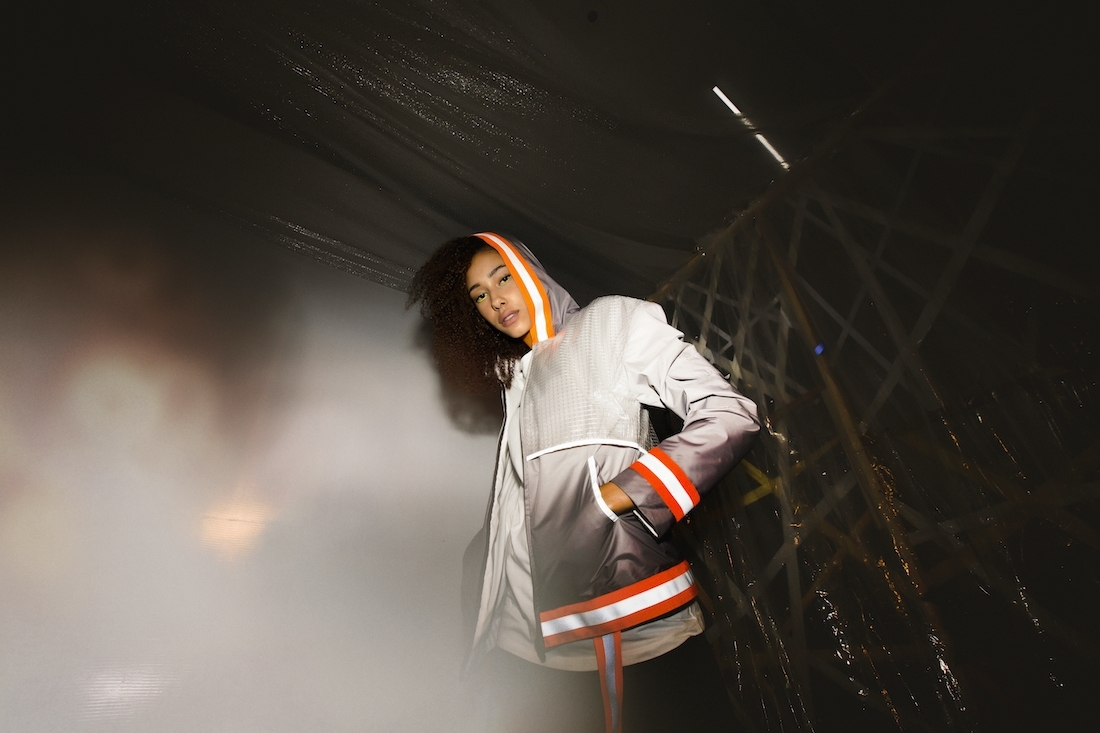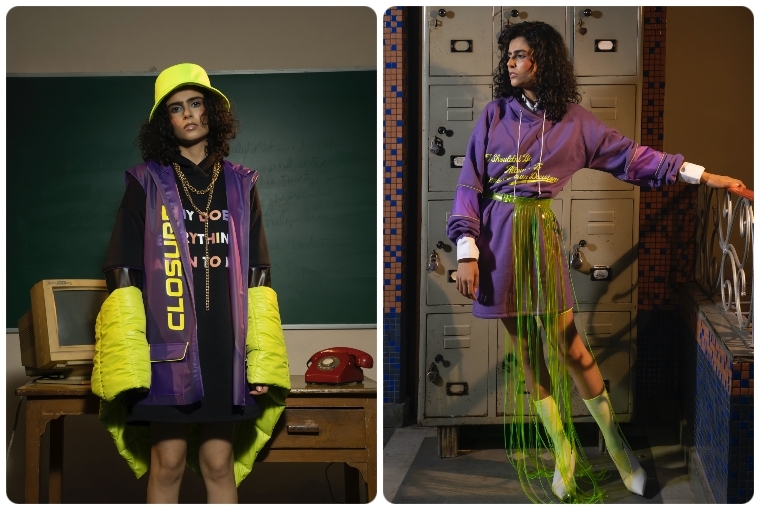

Streetwear, across the globe, has always held a very powerful meaning. History is a witness to its emergence as a subculture, clothes were never just clothes. The untailored seams and baggy fit contained within itself voices that stood up against injustice. Streetwear may be all luxury and logo now, but it hasn’t lost its meaning entirely. It continues to be a creative expression of the self, striving to be heard amidst a plethora of voices. At least that’s what young and budding designer Avishi Dayal Kalra of the label ADK believes. It was in the lanes of Manchester, during a scholarship programme, that she realised how keen she was to add to this global movement of sorts. She explained, 'I would be taking pictures of what people really wore on the streets, whether they were college students, businessmen, tourists etc. They don’t have a stylist, so what they wear is what defines each one of them. That's what streetwear is to me, to be myself.' Her journey with design started much earlier though, inspired by her mother who is also associated with design, she started scribbling silhouettes as a young child and was motivated to pursue her passion early on.
Creative expression of the self doesn’t merely just define ADK’s practice but also forms a large part of Avishi’s journey. It was very early on that the young entrepreneur launched her own label. She started by designing for Adidas India and a couple of hit t-shirts, inspired by construction wear later, she was enroute to pave the way for ADK. It wasn’t all smooth sailing, she did face her fair share of challenges. She spelled it out adding, 'I face challenges every day at work even now and I feel that you are a real designer if you can overcome those challenges. For instance, in the beginning my biggest concern was getting my collection outsourced. That was nerve-wracking. At the end of the day, I was able to get my own studio and a small team to begin my dream. A challenge that still plagues me is trying to reach out with my narrative organically and to build communication with people.'
Our present is in a stage of flux and what the future holds is uncertain, but this global pause has also led to the grave realisation that we need to slow down. We are in need of a system that is kinder to the environment and to the people working within it. Avishi added, 'Sustainability has ought to become a conscious decision for all of us and I believe it will be acknowledged more than ever before. For us, a new look would be fashion waste turned into clothes again.' As one of the first few helpers in fashion during the onset of COVID19 in the country, she started producing masks for those in need since her mother was suffering from a seasonal flu. A seasonal flu led to her reusing scrap fabric, which was previously too tiny to be recycled. She elaborated, 'I was never in the habit of discarding fabric since my college days. Most of the fabric we use is knitwear and cotton based. I felt it was apt to create reusable masks. We decided to do our bit and contribute to society by creating facemasks out of waste for safety and to reduce our footprint.' Fashion’s future may be up in the air right now but Avishi’s got a purpose in mind for ADK’s time ahead -- to turn their fashion waste into clothing again. With the next collection she further hopes to up cycle and create something new from something old.

Streetwear possesses a uniquely colourful past, from the skate culture of the 80’s to the New York hip hop era of the 90’s. It has also managed to turn gender stereotypes on their heads and as it continues to grow in the 21st century ADK’s aesthetic is injecting some much needed oomph, as it steadily finds its way in the indie rap scene in the country. As Avishi continues to be inspired by the streets, a space perceived to be fairly prosaic by many, we only hope her growing label enables more voices to come into their own.
Text Unnati Saini